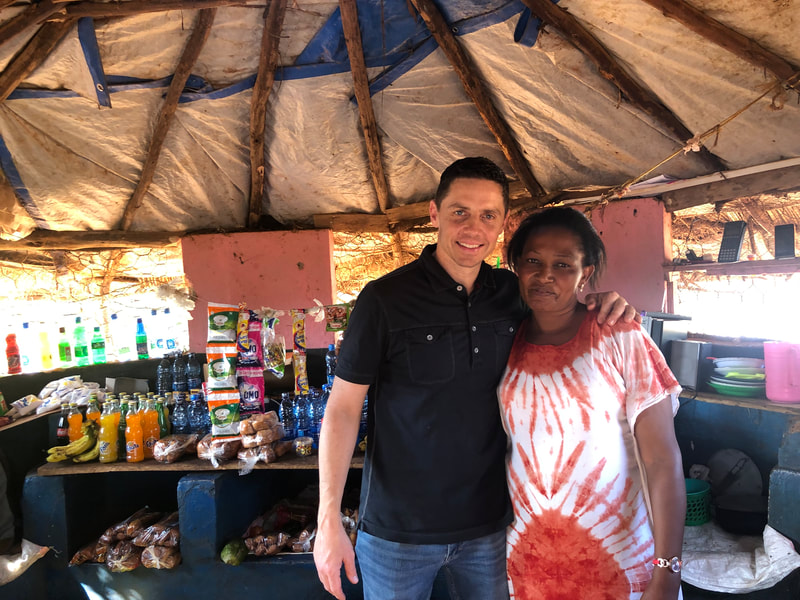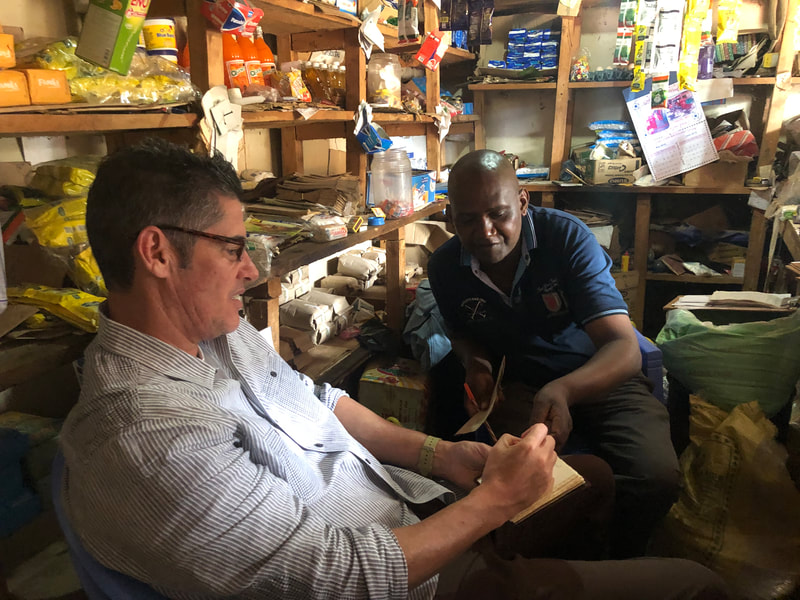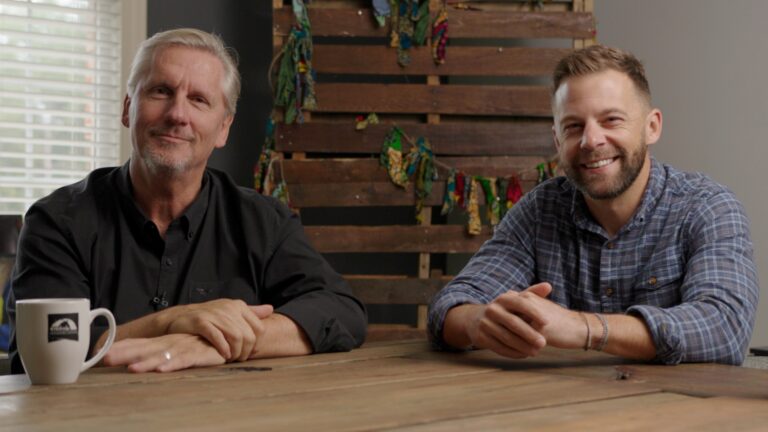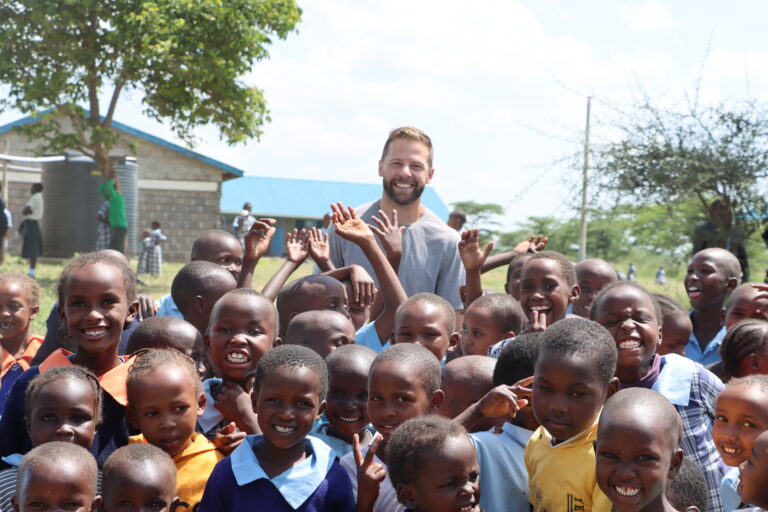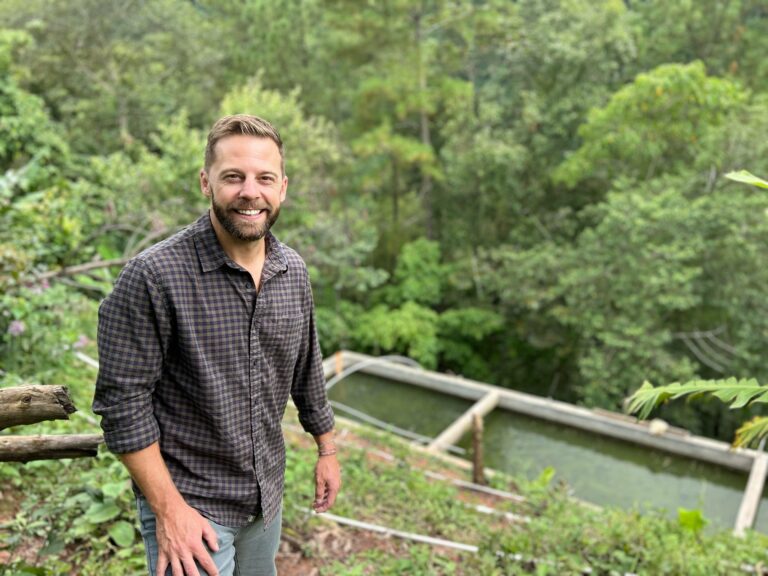As The 410 Bridge approaches its 14th year, I’ve lost count of how many trips to Kenya I’ve made. But this week was special…
I had the privilege of joining a team of five marketplace guys from North Point Community Church, who’ve spent the last 12 months in a pilot program called Frontier. Frontier is all about integrating faith and work. Doug Hurley (NPCC pastor) leads the ReWORK ministry and piloted Frontier. Our 9-day trip was the capstone of their year-long commitment.
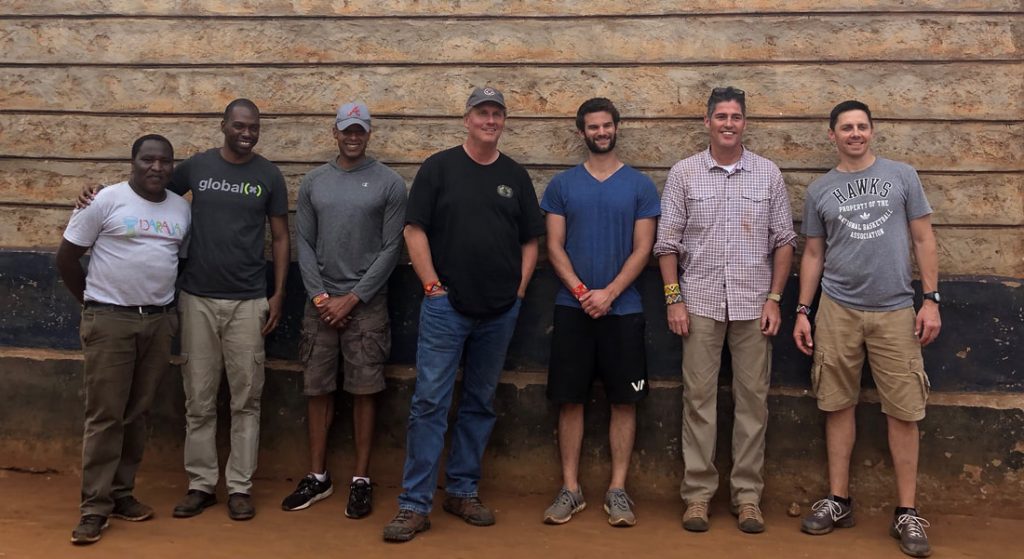
Our week together was all about the marketplace. We visited one of 410 Bridge’s largest communities – Kiu (pronounced, “Q”). We asked graduates of 410’s Business Start-up Training (BST) if they’d be willing to spend a couple days with a US business person as we worked in their businesses. The response was overwhelmingly positive and the community leaders selected several businesses for the guys to visit.
The idea was to have each team member spend a couple days in the life of a Kiu business owner. One team member per business. They’d spend the entire day doing whatever the business owner did. And “whatever” means whatever… Serving customers, delivering goods, stocking shelves, breaking down inventory, preparing food, etc. Whatever…
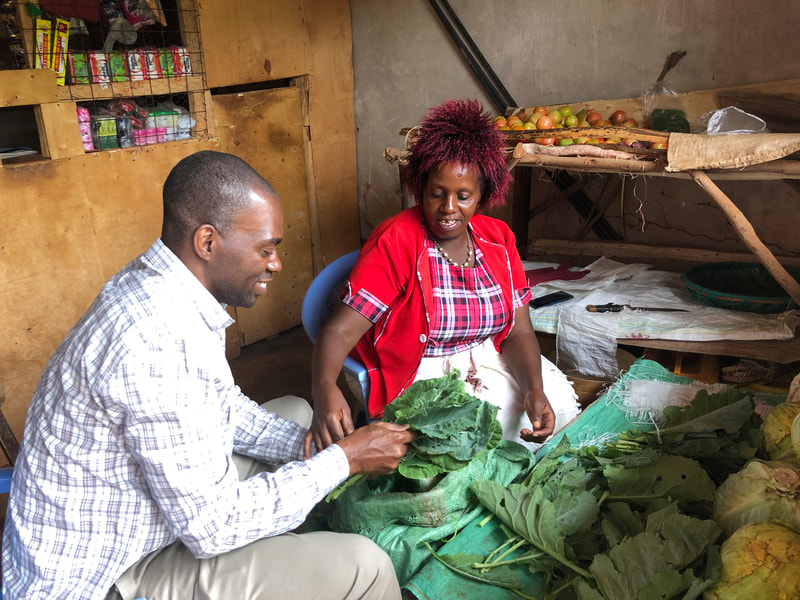
The objective for Day #1 was to learn about the business and to learn about each other. The tricky part was that the US team wasn’t allowed to give advice the first day; even if they were asked. As you might imagine, not giving advice can be a difficult thing for an American. We have this love affair with efficiency. We drive toward increased productivity and growth. We see a gap and we want to immediately fill it. We have an idea on how to ‘do it better’ and we almost can’t help but immediately share our opinion. There’s nothing wrong with any of that and it’s all well-intentioned, but the rule was ‘no advice.’ Just work together. Learn. Listen. Talk. Share. That’s it…
The guys were blown away. What they learned was that each of their hosts started their business with their own capital. The largest investment was $100. The smallest was $1 (four cabbages). It’s hard for us to imagine starting a business with just a buck, but they did. And today…? Today they’re earning hundreds, and in some cases, thousands of dollars each month. Of the businesses we visited, the least profitable business is earning 10 times what they made prior to the training. In a couple cases, multiple businesses have been started. They’re now paying school fees for their children to attend secondary school and college. One business owner even sponsors two other children in Kiu to attend school. They’re employing their neighbors. They’re driving the economy in Kiu and no longer look to outsiders to support them. They have choices. They have dignity, purpose and freedom.
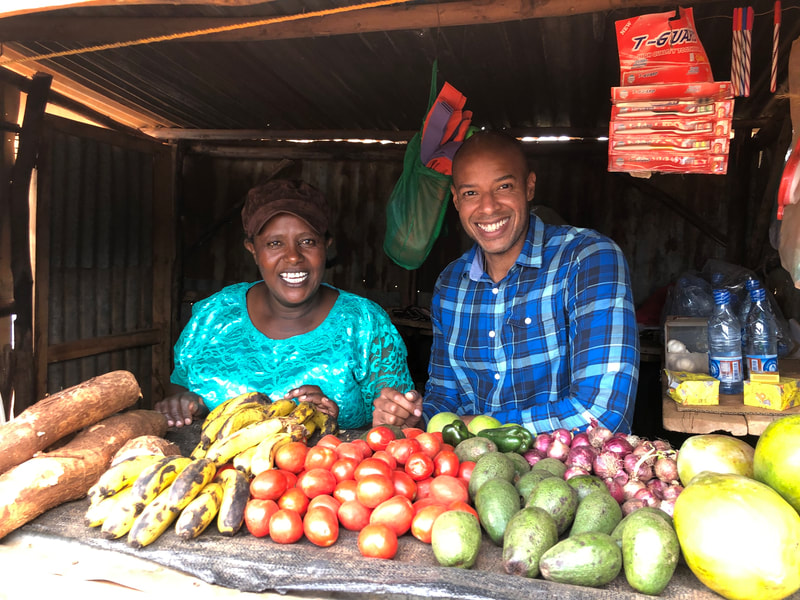
The guys also saw the integration of faith in the marketplace. It was everywhere. From the names of the businesses – Hope Enterprises and The Joy Shop – to the way they interacted with their customers. Their gratitude to God for the training and for their businesses was evident, and in everything. For them, it was an answer to prayer.
As I talked to the guys at the end of the week, they spoke of seeing the long-term effectiveness of The 410 Bridge model. They saw firsthand that the people of Kiu are not a set of problems to be fixed. They are the solution. Simply addressing their physical problems – water, education, health and economic development – won’t solve their poverty problem. That’s why 410 doesn’t define poverty as a material problem, we believe it’s an issue of worldview.
We also spoke about how the traditional methods of engaging the global poor are broken. Doing for people, instead of with people… Giving away used clothes, used shoes, and toothbrushes. Doing what we think they need, when we think they need it; after all, it’s our money and our idea so it should be our way, right? All of that does more to strip them of their dignity and disempower them, than provide an opportunity for lasting life change.
I recently heard Tim Elmore (Habitudes) talk about this is the context of raising kids, but his point conveys to 410’s work as well. He said, “When people feel their effort is hopeless, they begin to feel helpless. But when people see even the smallest progress, they’ll exert more effort.” Our team of marketplace professionals saw that in living color this week.
The 410 Bridge’s BST training has resulted in over 2,500+ new businesses in Kenya. That number is increasing every year and we’re looking for marketplace pro’s in the US to spend a week in the life of business owners in 410 communities. If that’s you, and you want to use your gifs to serve others, send us a note at info@410bridge.org.
Special thanks to my friend Doug Hurley at North Point Community Church for leading well. Thanks for allowing me to join you and your team!
